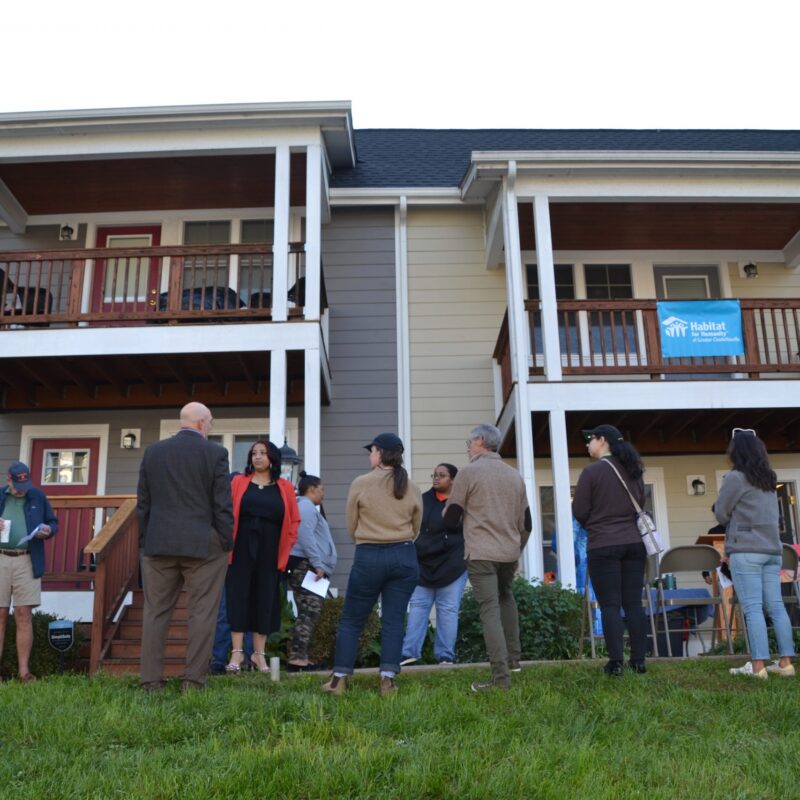Rob Vaughan, founder of Virginia Foundation for the Humanities, died March 6 at age 74, after a rapid progression of Alzheimer’s disease, according to his obituary. He leaves behind the largest, best-funded, and what a colleague calls “the gold standard” of humanities organizations in the country.
When then-UVA president Edgar Shannon tapped Vaughan, an English teacher working on his Ph.D., to explore starting a new humanities organization in 1974, he chose a man with an uncanny ability to connect the stories of all of Virginia’s communities, and to underscore the importance of those stories.
Kevin McFadden, chief operating officer of what is now called Virginia Humanities, describes Vaughan as a “builder” who “knew how to create the invisible structures that gather and unite people for a common purpose.”
McFadden worked with Vaughan for 17 years, starting out at the Virginia Festival of the Book, which is now in its 25th year and was Vaughan’s favorite program of the many created during his tenure.
Besides the better-known programs like the book fest, Encyclopedia Virginia, radio shows “With Good Reason” and “Backstory,” and the Virginia Folklife Program, the foundation supported thousands of projects, some that became institutions in their own right, such as the Moton Museum in Farmville, American Shakespeare Center in Staunton, and Furious Flower Poetry Center at JMU. Those organizations were helped by grants “at a critical moment that helped each one flourish on its own,” says McFadden.
Vaughan wooed Sarah McConnell away from WINA in 1999 to host “With Good Reason,” and he took copies of the show, which interviews leading scholars, to listen to when he traveled, she says.
Every year, Vaughan delivered a lecture to the General Assembly on the history of the legislature going back to the House of Burgesses, she says. “He was not political, but he knew all Virginia lawmakers across the aisle.” And that, she says, helped achieve a “more diverse Virginia.”
McConnell describes Vaughan’s style as “entrepreneurial. He never said ‘no’ to a new program.”
Donna Lucey, author of Sargent’s Women: Four Lives Behind the Canvas, works on Encyclopedia Virginia. She also calls Vaughan an entrepreneur and says he encouraged that among his staff, and gave them plenty of autonomy. “If they had a great idea, he’d let them go for it.”
Lucey, however, saw Vaughan as “a consummate politician walking the halls of the General Assembly where he knew everyone.” In 2017, the legislature passed a resolution honoring Vaughan.
“He had that Old World demeanor,” says Lucey. “I never saw a hair out of place. Even if he wore jeans, they were pressed.”
“I want to grow up to be like Rob,” says writer Earl Swift, who wrote three books as a foundation fellow, most recently Chesapeake Requiem: A Year with the Watermen of Vanishing Tangier Island.
“He was smart, empathetic, generous, and elegant—a man with a hungry mind, coupled with a profound faith that the ties that bind us, as a country and as people, are vitally important subjects of study, exposition, and support,” says Swift. “There was nothing fussy about his advocacy: He saw stories worth telling among Virginians of every walk of life, and every imaginable circumstance.”
With Vaughan, it always comes back to the stories—and to books. He was in a book group of men for over 40 years.
Observes McConnell, “He was really at base a shy preacher’s kid who loved books.”
A memorial service will be held at 1pm Wednesday, March 13, at Westminster Presbyterian Church.
“I want to grow up to be like Rob.” Writer Earl Swift





